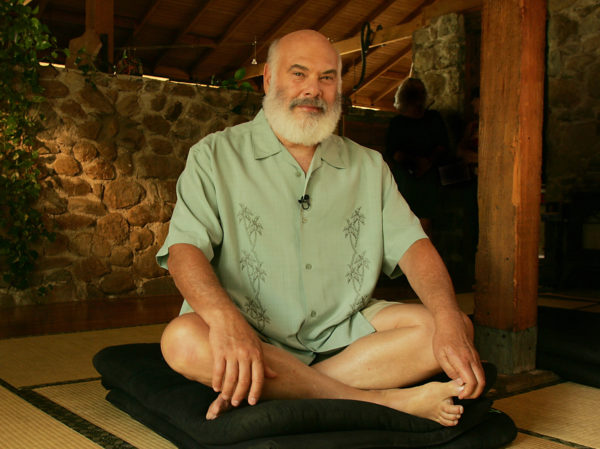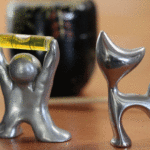Spontaneous Happiness

Hailed by critics as “generous and heartfelt,” “immensely beneficial” and “a comprehensive roadmap for the prized path to true happiness,” the book Spontaneous Happiness aims to guide readers to peak emotional wellness. Dr. Weil’s prescription includes lifestyle, behavioral and dietary changes that draw from a vast array of ancient and modern therapies including Ayurveda, acupuncture, herbal medicine, psychotherapy, exercise therapy, mindfulness training, and much more.
What led you to write this book?
In recent years, the number one search term used on my website, DrWeil.com, has been “depression.” This persuaded me that many people are seeking my advice on how to treat this condition. We have some articles on emotional health on the site, but given that the problem is so common and widespread, I felt a deeper, more comprehensive exploration was necessary. Also, I struggled with mild to moderate depression – known technically as “dysthymia” – for much of my adult life, but managed to emerge from it in my mid-50s by using many of the techniques and therapies I set forth in the book. So this was not just an academic exercise. I have a great deal of personal passion for this issue.
Why did you call it Spontaneous Happiness?
In 1995, I wrote Spontaneous Healing, a book that explored the body’s amazing ability to heal itself. The premise: if the body is supported by the right diet, exercise and other lifestyle choices, its innate healing mechanisms that “spontaneously” activate can bring physical systems into health and balance. In Spontaneous Happiness I contend that something similar can happen with our emotions. If you give yourself what’s necessary to support health in body, mind and spirit, emotional balance will arise within you on its own. This book is about how to create the conditions that will allow that balance to manifest spontaneously.
How do you define happiness?
In this book, I take care to point out that ceaseless joy is neither possible nor desirable. It is normal for moods to vary, but your ups and downs should balance each other. You should not get stuck emotionally, but rather remain resilient enough to consistently come back to a sort of affective emotional sea level, a place characterized by serenity, calm and a sense of contentment. Happiness – defined as a feeling of bliss or joy – can be easily, frequently accessed from this state. But the uniquely American idea that you can, or should, spend your whole life in a purely positive emotional state is unrealistic, and can ultimately be destructive.
What do you think is behind the depression epidemic in this country?
First, I think a great deal of it has been invented by the pharmaceutical companies to boost antidepressant drug sales. There has been a vigorous effort in the U.S. and, more recently, around the world to persuade everyone that sadness of any duration is depression, and the best way to treat it is via pills. This has, unfortunately, been wildly successful, raking in billions for drug manufacturers.
Aside from that, however, I believe the incidence of true depression really has increased to some extent. I think this is largely due to a huge mismatch between the modern world and the world in which we, as human beings, evolved. We simply are not meant to live as many of us do today: sedentary, alone, staring at glowing screens that keep us on perpetual information overload, eating processed food, and sleep-deprived as artificial light extends the natural day well into the night. Living this way undermines physical and mental health in profound ways.
So is the answer to withdraw from the modern world?
No. For most of us, that’s unrealistic. Instead, we need to realize that we must consciously follow behaviors in the modern world that reflect what our bodies and minds are meant to be doing. We need to move our bodies more; be truly (as opposed to electronically) social; eat whole, unprocessed food; and align our sleep more closely with the sun’s cycles. I also think that ancient spiritual traditions – particularly those that advocate various forms of meditation – can offer valuable opportunities for achieving emotional well-being. So can newer schools of psychotherapy such as “positive psychology,” which provides a wealth of specific techniques to boost emotional health.
How did writing this book help you personally?
While I think I left most of my dysthymia behind over a decade ago, I still had some things to learn. It was fascinating to dive into some of the recent research on achieving peak emotional wellness. I was really impressed by the lasting impact of gratitude training – that is, of specific exercises that improve your ability to express and feel gratitude, such as writing letters expressing thanks to people who have helped you, and reading them aloud to those people.
Training like this can change your life dramatically. For example, you might begin to view the experience of airline travel – which is almost universally hated – through the lens of gratitude. Rather than seeing it as an endless series of frustrations and obstacles, you are instead struck over and over by how many skilled people are working very hard to help you get where you need to go. It’s the same experience, but viewed through a new filter, it becomes an occasion for happiness rather than anguish. Now, I find this attitude coming to me more naturally, and it’s wonderful.
Spontaneous Happiness: A New Path to Emotional Well-Being, the latest book from Andrew Weil, M.D., is now available in paperback form.














